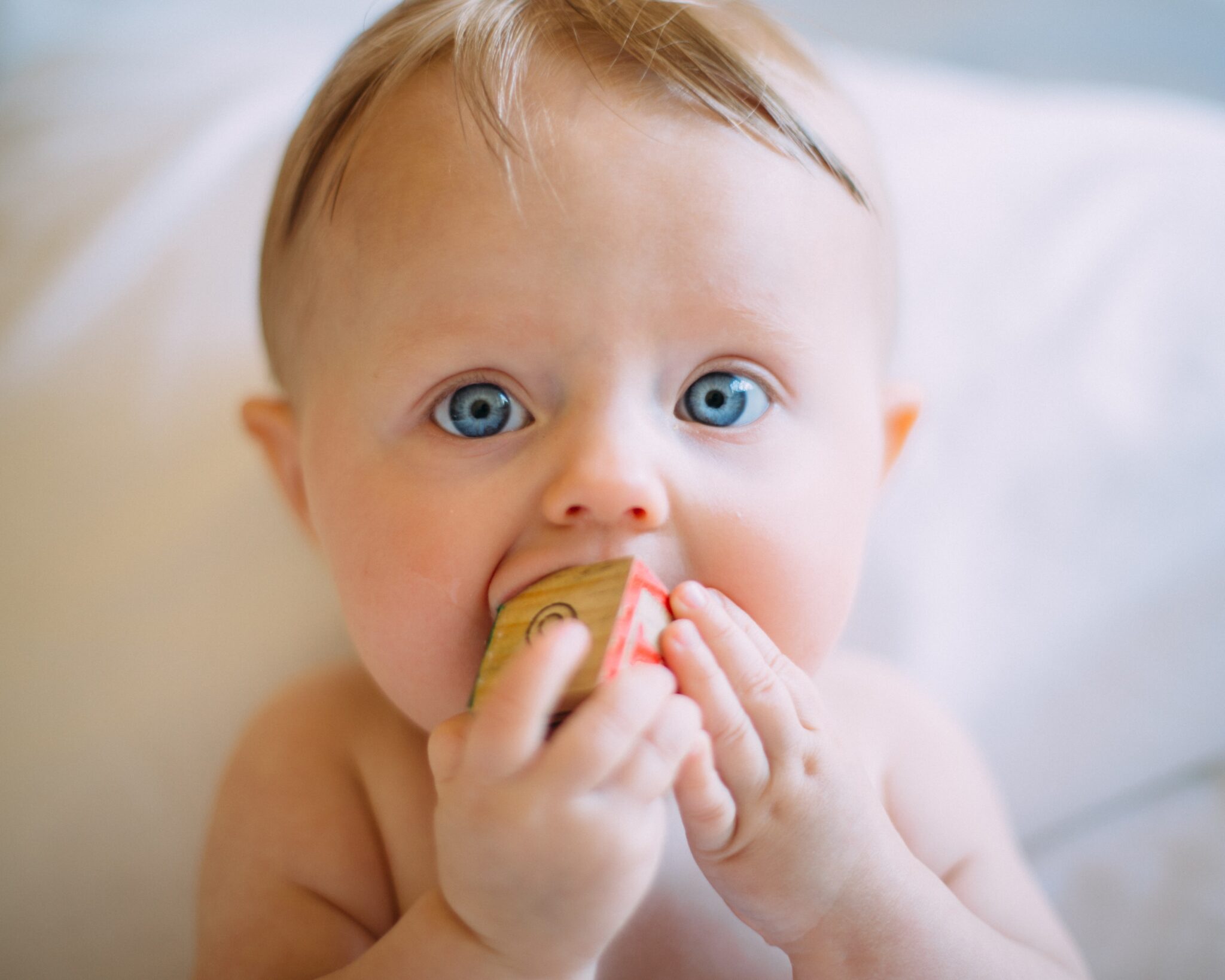
Their toes, toys, and even your phone–does everything your baby gets their hands-on end up in their mouth? If so, don’t worry. Oral exploration (also known as “mouthing”) is an expected milestone of your baby’s development and can be a positive experience for their wellness.
When your child is mastering how to reach for and grab for objects (typically at 3 to 5 months), it may seem like nothing is safe to your sweet baby’s drooling mouth. This happens for several reasons:
1. They are discovering their surroundings.
Oral exploration is a key developmental stage, and you may notice that your child may put anything up their mouths that their chubby little hands can grab. A baby’s mouth and lips are full of sensory nerves that help a baby identify something else. For example, a baby can tell if a block is hard or squishy by chewing on it.
2. They’re building their immune systems.
While your baby is learning about their surroundings through oral exploration, their immune system is also learning about different types of germs and how to protect their vulnerable little bodies best. While it may seem gross to introduce germs to your baby, it’s not necessarily harmful.
Even though this act can build the immune system, it’s essential that babies do not share contact with saliva from other babies or family members. Some may not realize that cavities can be contagious. Studies prove that the oral bacteria that cause tooth decay can be transmitted through close contact with another person who has poor oral hygiene. For example, care-takers can transmit cavity-producing oral bacteria to babies by cleaning pacifiers with their mouths or by sharing spoons. So, avoid these acts.
3. They are searching for a snack.
Did you know that your baby’s taste buds form during early pregnancy? Before babies are born, they already have a sweet tooth and prefer things that taste sweet over sour or salty foods. Paired with the fact that growing babies are almost always insatiably hungry with a sweet tooth, babies like to check if the objects around them are sweet enough to eat.
Thankfully, babies are born with an extrusion reflex that helps prevent choking. However, parents should not rely on reflexes alone to keep babies safe from choking hazards.
4. They’re self-soothing and trying to relax.
Before your baby learns how to suck on their thumb, they may suck or bite on their entire hand or anything they can get their hands on. Like adults, babies can engage in self-soothing behaviors to help them feel more relaxed when they feel unsafe, hungry, sleepy, or otherwise uncomfortable.
5. They are teething.
Can you imagine your teeth coming in all at once? Paired with sore gums, we can assume that teething is an excruciating experience for babies. Therefore, babies use their mouths to nibble on anything because it feels good when teething. Instead of letting your baby chew on anything in arm’s reach, consider icing their sore gums with frozen milk or formula into a “teething popsicle” to soothe sore gums and encourage additional hydration.
Is it time for your little one to visit the dentist?
If your baby has cut their first tooth or has already celebrated their first birthday, it’s time for them to meet with a pediatric dentist. At Smiles Dentistry for Kids, Dr. Matt inspects little mouths to ensure they develop properly, setting a foundation of wellness early.
Want to learn more about scheduling a free exam and cleaning for your child under age 2? Call (913) 685-9990 or message us online for more information.